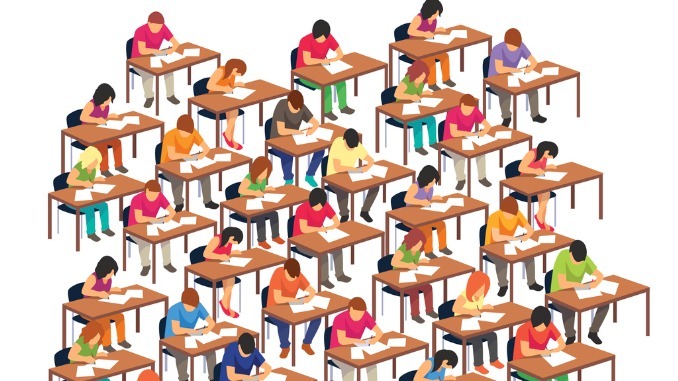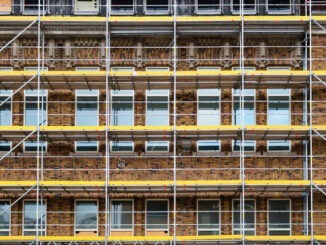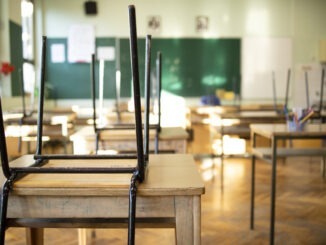As reported by BBC News, despite dangerous concrete closures, UK students facing exam challenges as government rejects extra help plea
Students have been unable to access design and technology workrooms, laboratories and other specialist spaces since September due to Raac.
Some have had to switch courses months before their GCSEs and miss out on required science experiments.
School leaders have called for special consideration.
But the Department for Education (DfE) said it was “not possible to make changes to exams and assessments for only some groups of students”.
A total of 231 schools in England were confirmed to have Raac, or reinforced autoclaved aerated concrete, in the most recent government list issued last month, but that list could continue to grow.
Over the summer, a Raac panel that would have been classed as “non-critical” collapsed at a school in England, prompting the closures.
Shoeburyness High School in Essex was aware of the presence of Raac in its design and technology block months before the school was added to the government’s official list.
Work to remove the concrete has been pushed back to Easter, which the school says would have been too late for GCSE design and technology students to complete the required practical work.
Rather than waiting for an extension that might not be allowed, the school switched the students to 3D design, a different GCSE course.
“It’s very, very difficult part-way through a course to be told you suddenly don’t have an option that you had before,” said Ben Stickley, CEO of Southend East Community Academy Trust, to which Shoeburyness High School belongs.
“We’d never want to do that, but what we’re looking at is the least-worst option for them.”
The school has asked for an extension for its A-level 3D design students, who have been using rulers and utility knives because they are unable to access the laser cutters typically used by students in other schools.
Mary, 17, is worried about how this will impact her plans to study architecture. She told the BBC she was shocked when students were told about the classroom closures at the start of the school year.
Some schools with Raac on site had to close entirely and teach students remotely, after they were told buildings were unsafe, days before the start of the autumn term.
The vast majority of schools – 228 – are reported to be back to face-to-face learning, but how that works in practice varies depending on how much Raac is present on site – and where it is.
The BBC has spoken to schools that have been teaching children in marquees, portable classrooms, sports halls and corridors. Some establishments have had to increase class sizes, or even ferry students to off-site venues.
Schools are concerned about the loss of specialist spaces which cannot be easily replicated, such as technology work rooms, science labs, sports facilities, toilets and canteens. Many playgrounds and sports areas are out of action because it is the only place to erect portable classrooms.
Schools have different ideas about what any extra help should look like.
Those ideas include assessing pupils’ grades on a case-by-case basis or schools being given a blanket percentage increase on their results. Others favour returning to teacher-assessed grades, which is what happened when exams were cancelled during the pandemic.
The DfE said: “It is not possible to make changes to exams and assessments for only some groups of students to address the impact of variable disruption to teaching.
“We are working closely with affected schools to ensure the best possible education for pupils and taking every step possible to remove any obstacles to learning through mitigations including temporary accommodation and in some instances use of specialist facilities in off-site accommodation.”
However, some coursework deadlines have been extended, according to the Joint Council for Qualifications (JCQ), which represents exam boards.
It advised affected schools to “get in touch with their exam boards for support on a case-by-case basis”, while Ofqual, England’s exams regulator, said it had told exam boards to prioritise those schools with Raac that contact them.
JCQ guidance states that “candidates will not be eligible for special consideration” as a result of “quality of teaching, staff shortages, building work or lack of facilities”.





Be the first to comment